VCE’s July 20-21 Mt. Mansfield banding session capped another productive field season, our 24th studying the ridgeline’s breeding bird community. After several weeks that brought record rainfall to the mountain, our final evening there was reminiscent of our first visit on June 3 — placid and balmy, with an arresting sunset. We had 23 mist nets open by 7 pm in ideal dry, calm conditions. By the time we closed up shop at dusk, our 9 captures included 4 Bicknell’s Thrushes (BITH), one the season’s first bob-tailed juvenile, another a returning 2014 male that had so far eluded us this year. The evening show-stopper was an adult female Sharp-shinned Hawk, netted in the fading light as she presumably sought a late-day meal.
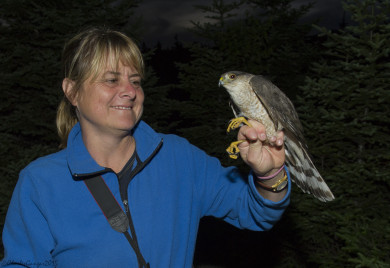
Jenn Megyesi and mist-netted female Sharp-shinned Hawk, Mt. Mansfield, 20 July 2015. Photo courtesy of Chuck Gangas.
Although the dusk chorus was a shadow of early June’s melee, vocal activity was solid, with American Robins, BITH and White-throated Sparrows leading the charge. Down at the ski patrol hut, I slept out under the stars, the first night I’ve been able to do so all season.
Dawn brought continued calm and fairly warm weather, as we opened our nets by 4:30 am. Netting was steady all morning, and kids ruled the day: half (24) of the 49 birds we netted were free-flying juveniles. Surprisingly, 7 of those were Golden-crowned Kinglets, which breed in Mansfield’s coniferous forests at lower elevations, but not on the ridgeline. These tiny bundles of energy are almost too small to handle, weighing in at a mere 6 grams or less! We caught several recently-fledged Blackpoll and Yellow-rumped warblers, as well as juncos and white-throats. As always in mid-July, non-local post-breeders and dispersing juveniles are beginning to show up — this week’s wanderers included a Downy Woodpecker, Hermit Thrush, Blackburnian and Black-throated Blue warbler. And, another sign that the nesting season is wound down, we captured several adult birds in early to mid stages of flight feather molt.
As always, we were delighted to have visitors join us on the ridgeline, this week in the persons of Jenn Megyesi and Sally Laughlin. Both are veteran birders, as well as experienced banders, but neither had ever held and released a BITH. I have to give a personal shout-out to Sally, to whom I owe a great deal during my 30 years as a Vermont ornithologist. She hired me at VINS in 1986, as a wet-behind-the ears grad student, and she has been a great mentor, advisor and friend ever since. Few have done more to advance bird conservation in this state than Sally Laughlin — we all owe her a profound debt of thanks!
As fledglings become independent and adults enter the period of heavy molt, VCE’s field work on Mansfield is on hiatus. We’ll return to the ridgeline in mid-Sept for a final session of netting and banding, as BITH undergo their annual resurgence of activity prior to migrating. Until then, it’s back to my real office…
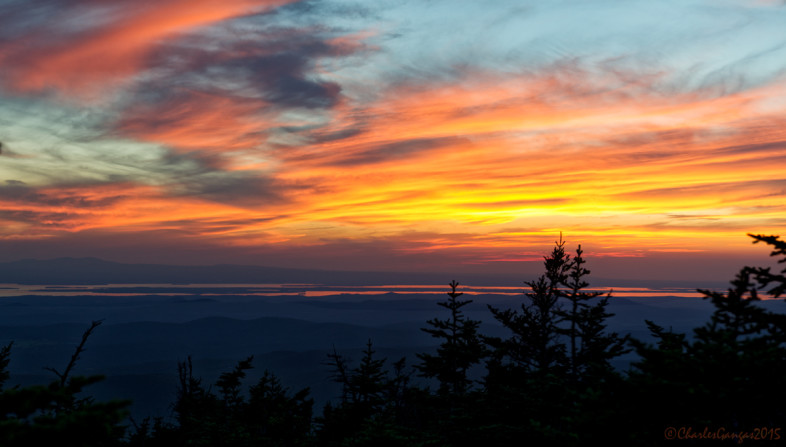
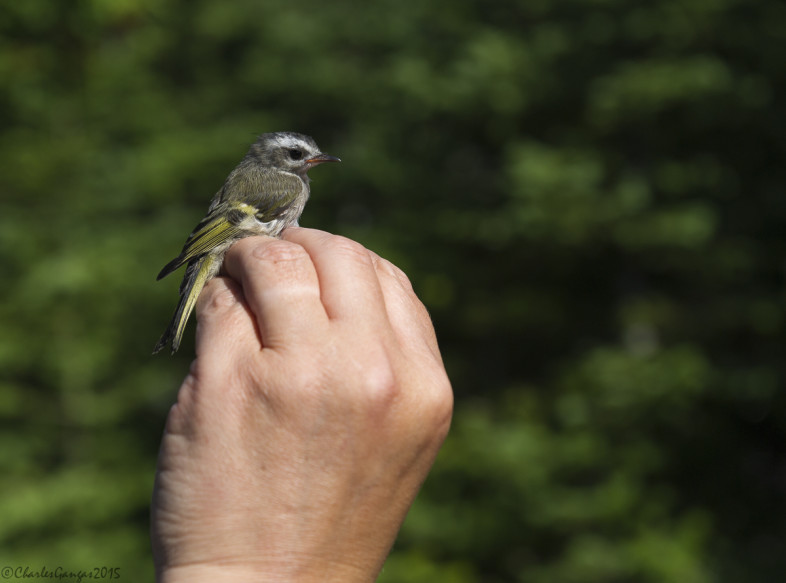
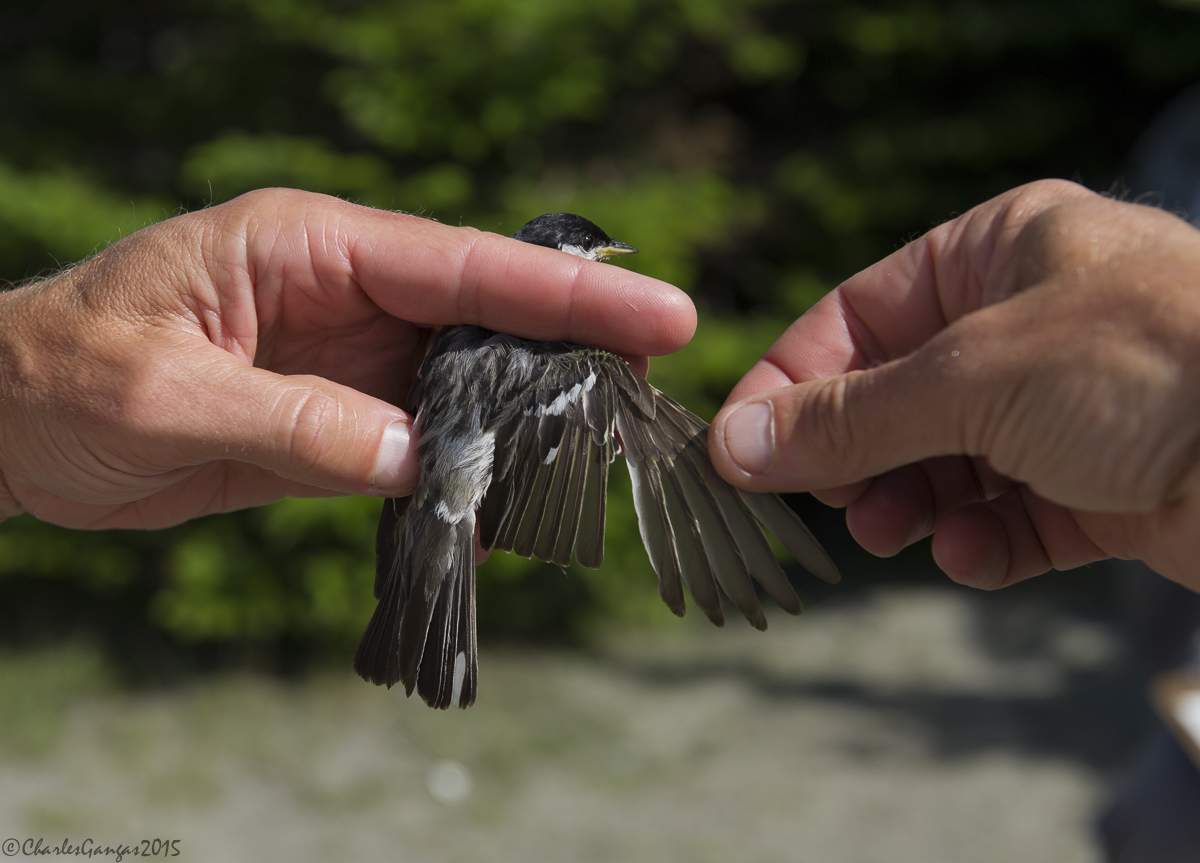
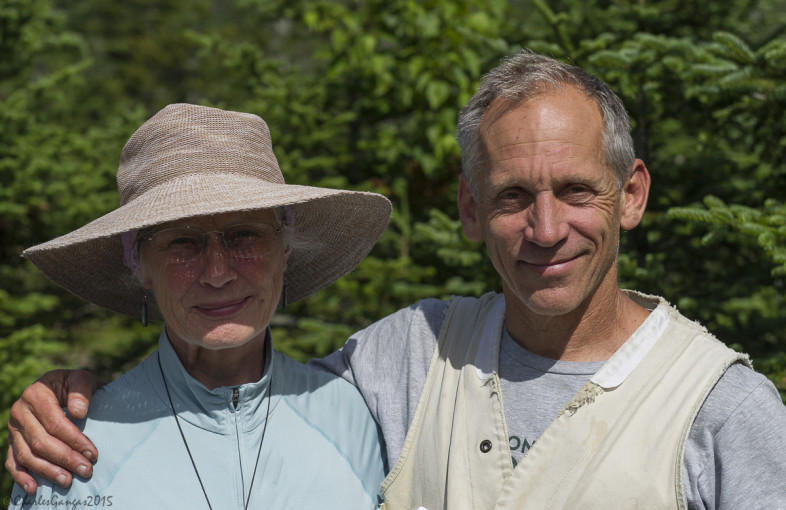

I love that pic of the female Sharpie. Look at that tail!
All of us who have started our birding life whether professionally or as a serious birder owe a big thank you to Sally Laughlin. There is nothing like being taught by the best.
Sue Wetmore